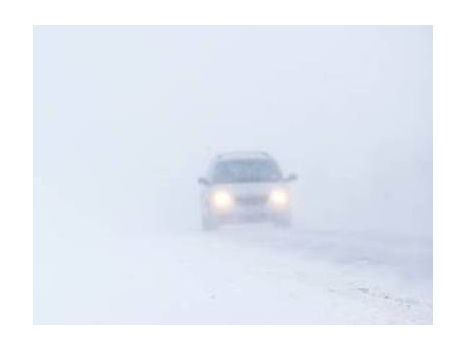Radio’s Reliability Is Why MMTC Is Not Giving Up On Multilingual Alerts For Radio.
- Inside Audio Marketing

- Feb 27, 2023
- 3 min read

The Multicultural Media, Telecom and Internet Council is renewing its call for the Federal Communications Commission to find a way to make emergency alerts available on radio and television stations in languages other than English. MMTC, which has been advocating for a “designated hitter” system, says efforts launched this month focused on the Wireless Emergency Alerts system are just a start.
MMTC President Robert Branson says in a letter to the FCC that although wireless providers “generally do a good job” of relaying multilingual emergency information in advance of anticipated disasters, he says cell towers and other wireless infrastructure are “often compromised or taken entirely offline” when disaster actually strikes. Branson says that leaves radio stations with back-up generators among the few sources of mass communications still operating during such events.
“MMTC urges the Commission to act on the Petition as soon as possible and to adopt the ‘designated hitter’ proposal, which would ensure that at least one commercial or noncommercial full power radio station capable of remaining on air during emergencies can arrange in advance to broadcast lifesaving emergency alerts in multiple languages,” Branson says.
The idea of using a so-called designated hitter to ensure foreign-language programming is available on the radio during a disaster is not new. And while broadcasters have taken steps to create such outreach on an ad hoc basis during disasters, MMTC has pushed the Commission to oversee the program. But with broadcasters resistant to such a formalized effort, MMTC said last March that it sees a “hybrid approach” as a workable alternative, relying on stations to step up on their own.
Branson proposed that in markets where a broadcaster volunteers, the station would need to provide notice to the FCC that it will be serving as a designated hitter. In the remaining markets, the Commission would hold a lottery or contact broadcasters directly to identify whether they can serve as the designated hitter. Recognizing that many stations do little local programming origination, Branson suggested that a station have the opportunity to “prove hardship” in order to sidestep the responsibility.
The National Association of Broadcasters has been cool to the idea of creating a designated hitter system for radio stations to date. They have said the proposal ignores the long tradition of broadcasters banding together to help a station in need restore operations during an emergency. The MMTC has said that an entirely voluntary system of multilingual emergency alerts “is not sufficient” noting that in many markets there aren’t any non-English stations.
The Commission may be more open to proceeding with a broadcast plan than in the past. This month FCC Chair Jessica Rosenworcel sent letters to the nation’s nine largest providers of Wireless Emergency Alerts seeking information on how these alerts can start to support more languages beyond English and Spanish on the WEA system. “I believe that language should not be a barrier to getting critical information that could save lives,” Rosenworcel wrote in the letters.
Unlike radio and television, WEA may prove to be more technology-ready to distribute alerts in a variety of languages. Since the system went operational in 2012, it has been used more than 70,000 times to distribute geographically-targeted, text-like messages to mobile devices, warning the public about dangerous weather, missing children, or other critical situations. But WEA currently supports only alerts in English and Spanish.
EAS Filing Deadline Approaches
Multilingual alerts are something that remains on the horizon potentially for radio, but stations in the meantime are staring down a regulatory deadline. The Public Safety and Homeland Security Bureau says every EAS participant, including radio stations, must submit what’s known as “Form One” in the EAS Test Reporting System for 2022 by tomorrow (February 28). Form One is the filing that tells the FCC about which EAS decoder and encoder stations are using, or units combining such decoder and encoder functions, as well as other identifying data and a station’s contact information. The only exception for radio is if it’s an FM translator or booster station.
The requirement is not new, but attorney David Oxenford says this is not the year for broadcasters to forget to file. “While the FCC has not in the past fined stations who failed to file these reports, there are indications that the filing requirement may be taken much more seriously this year,” he writes in a blog post.
The FCC has also released its 2023 updated version of the EAS Operating Handbook. That is the document that a station must keep close to EAS equipment to, among other things, allow a station to authenticate incoming alerts. Download a copy of the update HERE.




Comments